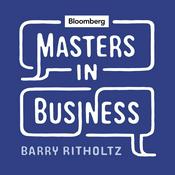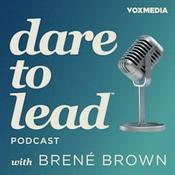141 episodes
- Today on Moment of Zen, Erik Torenberg and Samo Burja explore cities as civilization's most enduring institutions, examining their political dynamics, technological evolution, and role as interfaces between competing social forces and power structures.
Make sure to subscribe to Samo Burja's Bismarck Brief and the Live Players podcast to read analyses and briefs like this one:
Bismarck Brief: https://brief.bismarckanalysis.com/
Live Players: https://link.chtbl.com/liveplayers
--
📰 Be notified early when Turpentine's drops new publication: https://www.turpentine.co/exclusiveaccess
🙏 Help shape our show by taking our quick listener survey at https://bit.ly/TurpentinePulse
--
SPONSORS: NETSUITE | SHOPIFY | SQUAD
More than 42,000 businesses have already upgraded to NetSuite by Oracle, the #1 cloud financial system bringing accounting, financial management, inventory, HR, into ONE proven platform. Download the CFO's Guide to AI and Machine learning: https://netsuite.com/102.
Shopify is the world's leading e-commerce platform, offering a market-leading checkout system Shoppay and exclusive AI apps. Nobody does selling better than Shopify. Get a $1 per month trial at https://shopify.com/momentofzen.
Head to Squad to access global engineering without the headache and at a fraction of the cost: head to https://choosesquad.com/ and mention “Turpentine” to skip the waitlist.
--
X / TWITTER:
@SamoBurja
@eriktorenberg
@turpentinemedia
--
Key Highlights
Core Thesis:
Cities are humanity's most enduring institutions (5,000+ years), persisting through complete civilizational changes due to human co-location needs
Political Dynamics:
Cities vote left due to visible inequality and Democratic urban optimization
Republicans lack compelling urban vision beyond deregulation
Prediction: DC will become America's dominant city like Moscow or Paris
Digital-Physical Connection:
Social media platforms remain tied to specific cities (Twitter/SF, Instagram/LA)
Physical proximity still creates career advantages despite digital connectivity
Reform Strategies:
Moving coordinated voter blocs more effective than building charter cities
Charter cities work best in high-growth regions (Africa, Central America)
Current cities technologically obsolete - not optimized for autonomous vehicles
Need for "Refounding":
Cities require complete institutional overhaul rather than incremental reform
Political and cultural change must originate in cities, not countryside
Hosted by Simplecast, an AdsWizz company. See pcm.adswizz.com for information about our collection and use of personal data for advertising. AI and The War for Your Attention | Antonio Garcia Martinez and Chris Hayes from the a16z Podcast
02/08/2025 | 50 mins.Today on Moment of Zen, we're excited to cross post a conversation from the newly revamped a16z podcast featuring Antonio Garcia Martinez and MSNBC's Chris Hayes exploring how AI-generated content is reshaping the attention economy, from algorithmic manipulation to the future of human creativity in digital spaces. Listen to more episodes of The a16z Podcast here: link.chtbl.com/blpusvv-
--
📰 Be notified early when Turpentine's drops new publication: https://www.turpentine.co/exclusiveaccess
🙏 Help shape our show by taking our quick listener survey at https://bit.ly/TurpentinePulse
--
SPONSORS: NETSUITE | SHOPIFY | SQUAD
More than 42,000 businesses have already upgraded to NetSuite by Oracle, the #1 cloud financial system bringing accounting, financial management, inventory, HR, into ONE proven platform. Download the CFO's Guide to AI and Machine learning: https://netsuite.com/102.
Shopify is the world's leading e-commerce platform, offering a market-leading checkout system Shoppay and exclusive AI apps. Nobody does selling better than Shopify. Get a $1 per month trial at https://shopify.com/momentofzen.
Head to Squad to access global engineering without the headache and at a fraction of the cost: head to https://choosesquad.com/ and mention “Turpentine” to skip the waitlist.
--
X / TWITTER:
@chrislhayes
@antoniogm
@eriktorenberg
@turpentinemedia
--
Key Highlights
AI "Slop" Problem: Discussion of how AI-generated content could overwhelm social platforms with low-quality material, similar to email spam but at unprecedented scale
Attention vs. Intent Gap: The fundamental tension between what captures our attention algorithmically versus what we actually want to consume
Brand Advertising Paradox: Why major advertisers (Ford, Progressive) still avoid platforms like TikTok despite massive young audiences, suggesting ad tech limitations
Cultural Homogenization: How algorithmic feeds are creating identical subcultures across geographic boundaries while fragmenting shared national experiences
Group Chat Migration: The shift from public posting to private messaging as people seek authentic community away from performative social media
Future Interface Prediction: AI chatbots becoming the primary way we interact with digital services, replacing traditional apps and websites
Technology vs. Utility: The disconnect between what's profitable (attention-grabbing tech) versus what's genuinely useful (like solar power), and its implications for innovation priorities
Hosted by Simplecast, an AdsWizz company. See pcm.adswizz.com for information about our collection and use of personal data for advertising.- Today on Moment of Zen, Erik Torenberg and Samo Burja explore how China's elite universities are creating a ruling class similar to America's, with student activism and credentialism reshaping both nations' power structures.
Make sure to subscribe to Samo Burja's Bismarck Brief and the Live Players podcast to read analyses and briefs like this one:
Bismarck Brief: https://brief.bismarckanalysis.com/
Live Players: https://link.chtbl.com/liveplayers
--
📰 Be notified early when Turpentine's drops new publication: https://www.turpentine.co/exclusiveaccess
🙏 Help shape our show by taking our quick listener survey at https://bit.ly/TurpentinePulse
--
SPONSORS: NETSUITE | SHOPIFY | SQUAD
Over 41,000 businesses trust NetSuite by Oracle, the #1 cloud ERP, to future-proof their operations. Whether you're earning millions or hundreds of millions, NetSuite empowers you to tackle challenges and seize opportunities. Download the free CFO's guide to AI and machine learning at https://netsuite.com/zen.
Shopify is the world's leading e-commerce platform, offering a market-leading checkout system Shoppay and exclusive AI apps. Nobody does selling better than Shopify. Get a $1 per month trial at https://shopify.com/momentofzen.
Head to Squad to access global engineering without the headache and at a fraction of the cost: head to https://choosesquad.com/ and mention “Turpentine” to skip the waitlist.
--
X / TWITTER:
@SamoBurja
@eriktorenberg
@turpentinemedia
--
Key Highlights
Core Thesis: Elite Convergence
China and America are creating remarkably similar ruling classes despite being geopolitical rivals with different political systems
Universities are the primary mechanism driving this convergence in both countries
China's Leadership Evolution
Historic shift: For the first time, Chinese leaders are educated in China's own elite universities (Peking, Tsinghua, etc.) rather than abroad or through practical experience
From engineers to lawyers: China moving from technocrats with engineering backgrounds to university-credentialed elites
Signaling theory: Chinese elite universities now function like Harvard/MIT as intelligence signals
"Chinese Woke" vs Western Woke
China already has student activism - but it's Marxist/Maoist students organizing workers' unions
Ideological trap: Communist Party struggles because students use party ideology to critique the party itself
Future prediction: Chinese "woke" will likely focus on gender/feminism rather than racial/ethnic issues due to China's homogeneity
University Power Dynamics
Zero-sum tournament: Universities create gatekeeping for elite positions in both countries
Elite clubs, not education: Universities function more as exclusive clubs than learning institutions
Defensibility: University power will be extremely difficult to dislodge without radical intervention
Consequences for China
Positives: Better rule of law, higher status for journalists/lawyers, more humanistic perspective
Negatives: Loss of business acumen, reduced technical expertise, potential future incompetence as credentials replace competence
Mirror Society Concept
Both nations face similar paradoxes: Ideological foundations that create unresolvable contradictions
Generational warfare: Young elites using ideology to displace older generations in both systems
Talent retention: China increasingly keeping its best students domestically rather than sending them to American universities
Long-term Prediction
China's government may become incompetent as university credentials replace practical experience and technical knowledge
Hosted by Simplecast, an AdsWizz company. See pcm.adswizz.com for information about our collection and use of personal data for advertising. - Today on Moment of Zen, Erik Torenberg and Samo Burja explore AI hardware dominance, US-China semiconductor competition, automation's economic impacts, and strategic industrial policy for maintaining technological leadership.
Make sure to subscribe to Samo Burja's Bismarck Brief and the Live Players podcast to read analyses and briefs like this one:
Bismarck Brief: https://brief.bismarckanalysis.com/
Live Players: https://link.chtbl.com/liveplayers
--
📰 Be notified early when Turpentine's drops new publication: https://www.turpentine.co/exclusiveaccess
🙏 Help shape our show by taking our quick listener survey at https://bit.ly/TurpentinePulse
--
SPONSORS: NETSUITE | SHOPIFY | SQUAD
Over 41,000 businesses trust NetSuite by Oracle, the #1 cloud ERP, to future-proof their operations. Whether you're earning millions or hundreds of millions, NetSuite empowers you to tackle challenges and seize opportunities. Download the free CFO's guide to AI and machine learning at https://netsuite.com/zen.
Shopify is the world's leading e-commerce platform, offering a market-leading checkout system Shoppay and exclusive AI apps. Nobody does selling better than Shopify. Get a $1 per month trial at https://shopify.com/momentofzen.
Head to Squad to access global engineering without the headache and at a fraction of the cost: head to https://choosesquad.com/ and mention “Turpentine” to skip the waitlist.
--
X / TWITTER:
@SamoBurja
@eriktorenberg
@turpentinemedia
--
Key Highlights
Hardware as AI's Foundation
Data collection (cameras, self-driving cars) and computation infrastructure are the two critical hardware pillars driving AI advancement
Physical proximity between chip designers, manufacturers, and users creates significant competitive advantages
US-China Semiconductor Competition
Export controls came too late and actually accelerated China's domestic chip development
Taiwan's TSMC holds crucial position due to personal relationships (Jensen Huang-TSMC founder connection)
China has skilled engineers who can optimize hardware locally, creating efficiency gains
Proposed US Strategy
Create special industrial zones (Bay Area or Texas) co-locating chip fabs, data centers, and AI labs
Massive government investment ($500B-$1T) to build "America's TSMC"
Talent acquisition focused on patriotic Americans rather than relying solely on foreign talent
Start with defense contracts (NSA/CIA) to justify fully US-manufactured chips
Automation's Political Risks
Automating 50% of white-collar work = economic growth
Automating 95% of white-collar work without physical automation = political disaster
Displaced laptop class more dangerous than displaced blue-collar workers due to organizational capabilities
Risk of expanded bureaucracy and protectionist policies
Physical vs. Knowledge Work
Knowledge work easier to automate (already digitized)
Physical automation requires specialized companies for each domain (5+ years per application)
Preference for specialized robotics over general humanoid robots to maintain employment transitions
Hosted by Simplecast, an AdsWizz company. See pcm.adswizz.com for information about our collection and use of personal data for advertising. - Today on Moment of Zen, Erik Torenberg and Samo Burja examine Singapore's transformation from poor post-colonial state to wealthy financial hub through Lee Kuan Yew's strategic governance, geopolitical balancing, and prioritizing economic efficiency over individual freedoms.
Make sure to subscribe to Samo Burja's Bismarck Brief and the Live Players podcast to read analyses and briefs like this one:
Bismarck Brief: https://brief.bismarckanalysis.com/
Live Players: https://link.chtbl.com/liveplayers
--
📰 Be notified early when Turpentine's drops new publication: https://www.turpentine.co/exclusiveaccess
🙏 Help shape our show by taking our quick listener survey at https://bit.ly/TurpentinePulse
--
SPONSORS: NETSUITE | SHOPIFY | SQUAD
Over 41,000 businesses trust NetSuite by Oracle, the #1 cloud ERP, to future-proof their operations. Whether you're earning millions or hundreds of millions, NetSuite empowers you to tackle challenges and seize opportunities. Download the free CFO's guide to AI and machine learning at https://netsuite.com/zen.
Shopify is the world's leading e-commerce platform, offering a market-leading checkout system Shoppay and exclusive AI apps. Nobody does selling better than Shopify. Get a $1 per month trial at https://shopify.com/momentofzen.
Head to Squad to access global engineering without the headache and at a fraction of the cost: head to https://choosesquad.com/ and mention “Turpentine” to skip the waitlist.
--
X / TWITTER:
@SamoBurja
@eriktorenberg
@turpentinemedia
--
Key Highlights
Foundation & Strategy
Lee Kuan Yew transformed Singapore from poor colony to wealthy financial hub through meritocratic governance
Strategic location on Straits of Malacca controls vital trade routes to China
Governance Model
High government salaries prevent corruption and attract talent
Prioritized economic growth over social benefits through "delayed gratification"
City-state scale enables efficient planning and direct accountability
Economic Evolution
1960s-90s: Industrial development
Post-1990s: Tax haven and Asian financial center
Current: Attracting foreign headquarters and wealthy immigrants
Geopolitical Navigation
Successfully balanced US-Soviet competition during Cold War
Defeated internal communist movement in 1960s
Now faces choice between US alliance vs Chinese economic integration
Unique Features
Harsh law enforcement (death penalty, caning) maintains order in dense city
Land reclamation for expansion
Investing in insect protein/vertical farming for food security
Challenges
Vulnerable to deglobalization as trade blocs form
Lee family succession continues (hereditary leadership)
Failed to solve demographic decline despite early efforts
Lessons
Scalable: Low corporate taxes, strong city governance, automation investment
Non-scalable: Extreme efficiency pressure, geographic advantages, population density
Hosted by Simplecast, an AdsWizz company. See pcm.adswizz.com for information about our collection and use of personal data for advertising.
More Business podcasts
Trending Business podcasts
About "Moment of Zen"
Every week, Erik Torenberg, Dan Romero, Antonio Garcia Martinez and frequent special guests discuss what's happening in technology, business, politics, and beyond.
Moment of Zen is part of the Turpentine podcast network. Learn more: turpentine.co
Podcast websiteListen to "Moment of Zen", The Prof G Pod with Scott Galloway and many other podcasts from around the world with the radio.net app

Get the free radio.net app
- Stations and podcasts to bookmark
- Stream via Wi-Fi or Bluetooth
- Supports Carplay & Android Auto
- Many other app features
Get the free radio.net app
- Stations and podcasts to bookmark
- Stream via Wi-Fi or Bluetooth
- Supports Carplay & Android Auto
- Many other app features


"Moment of Zen"
Scan code,
download the app,
start listening.
download the app,
start listening.

























